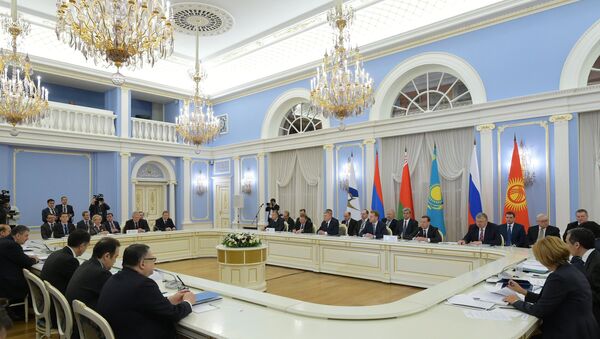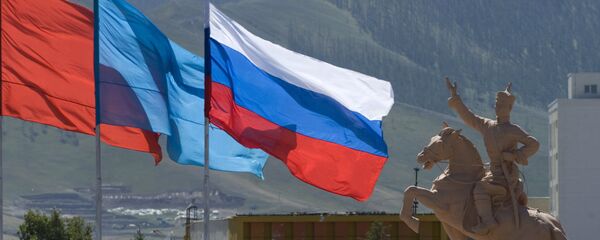"As you know, the process of integration and establishment of regional blocs is underway in the world, and that is why Mongolia, located between such powerful states as Russia and China, and without access to the sea, is glad to join some economic blocs and work effectively, In this regard, the Eurasian Economic Union is of great interest for us," Delgermaa said in the interview to Rossiya 24 channel.
Delgermaa noted that joining the EEU was earlier discussed with former Armenian Prime Minister Tigran Sargsyan, who is currently the chairman of the Eurasian Economic Commission, the executive body of the EEU.
The Eurasian Economic Union is a Russia-initiated regional political and economic bloc which aims to streamline the flow of goods and services between its members, namely Russia, Kyrgyzstan, Armenia, Belarus, and Kazakhstan.
"The potential of trade relations between the two countries is very big, earlier we had joint ventures, unfortunately we do not see any investment projects yet. But at the SCO summit in Tashkent this year a program of economic corridor was signed, on which we hope. We also hope that the investment environment would improve," Delgermaa told the Rossiya 24 TV-channel in an interview.
She said that the countries had positive political relations but noted that there were misbalances in bilateral trade with the turnover amounting to $1.2 billion and Russian export to Mongolia – over $1 billion.
Delgermaa pointed out that Russia had always been a good neighbor of Mongolia – especially during last 95 years.
Earlier on Saturday, Russian Foreign Minister Sergey Lavrov and his Mongolian counterpart Tsendiyn Munkh-Orgil had exchanged congratulatory messages marking the 95th anniversary of establishing diplomatic ties between the countries.
Russia and Mongolia have almost a century-long history of friendly relations. Mongolia declared its independence from China in 1911 following the Xinhai revolution in China. In 1921, Russian White warlord Roman von Ungern-Sternberg helped to free the Mongolian capital of Urga from Chinese troops thus protecting the country’s independence. The same year, Mongolia witnessed a revolution that resulted in improving relations with Soviet Russia. In late 1930s – early 1940s, the countries joined their efforts resisting expansion of the Japanese Empire.




